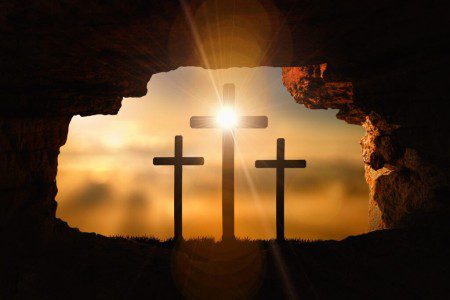 By Brenda Cannon Henley
By Brenda Cannon Henley
Asking five different people what Easter means to them, I received five different answers. All participants were helpful, willing, and sincere, and boasted perhaps above average intelligence. All were not active church goers or members of one specific church or faith. Realizing that the circulation of our newspaper reaches people from all faiths, many beliefs, and certainly varied personalities, I wanted general answers, and not specific doctrinal beliefs of one particular sect of branch or church held position.
The most oft repeated answer was the theme of family sharing dedicated time in being together, celebrating, eating a meal, enjoying age appropriate activities, and attending services planned and conducted by their home church.
Without being coaxed or advised, I also learned what some believe Easter does not entail.
At least one person interviewed had strong disapproval for dyed eggs, egg hunts, the Easter bunny, and over the top celebrations not based on Christian teaching.
Let me state clearly that while the church I belong to and work with does believe strongly in the biblical interpretation of Easter, our leadership and members do plan fun activities for our children including candy hunts, parties, plays, good food and treats, and lots of fun.
I realized many years ago that I write for readers of all faiths, ages, and localities since our distribution is widespread and varied. You may not necessarily believe exactly as I do, but I believe we can find common ground for discussion and thought.

According to most dictionaries, Easter is “an annual Christian festival in commemoration of the resurrection of Jesus Christ, observed on the first Sunday after the first full moon after the vernal equinox.” The holiday is often referred to as Easter Sunday with the high point of activities falling on that day.
Scholars point out that the actual word, Easter, does not appear in Scripture, although the King James Version has it in Acts 12:4 where it stands for Passover.
According to most Bible dictionaries, the name “Easter” was derived from “Eostre,” “originally a Saxon word (Eostre), denoting a goddess of the Saxons, in honor of whom sacrifices were offered about the time of the Passover.”
Another probability is the Norse eostur, eastur, or ostara, which meant “the season of the growing sun” or “the season of new birth.” The word Easter is also linked to the changing of the seasons.
As a Christian, I believe that Easter celebrates Jesus Christ’s triumph over death. His proven resurrection means the eternal life that is granted to all who believe in Him. The purpose of Easter also confirms all that Jesus taught and preached during His three-year ministry. If He had not risen from the dead, He would have been just another teacher or prophet.
The resurrection of Jesus Christ from the dead is the core of what I believe and hold dear. The Apostle Paul wrote that, “If Christ is not raised from the dead, then our preaching and hope are in vain.” (1 Corinthians 15:14).
Two sermons I remember from years past include vivid illustrations of what Easter means to me. One was told by an elderly country preacher. Not debating the actual day Jesus died (age old topic of controversy), the wise old man closed many messages with the following, “Whatever you are facing in life today, you just remember – This may be Friday, but Sunday’s a’coming!” He was, of course, referring to the death, burial, and resurrection of the Lord Jesus.
And the second Easter thought that brings me great joy is that when anyone asks me why I know I am going to Heaven when I die, I answer, “Because the man on the middle cross said I could!”
Happy Easter to our readers.
Brenda Cannon Henley can be reached at 409 781 8788, or
[email protected]
[BCH: Apr-4-2023]

 Posted in
Posted in 























